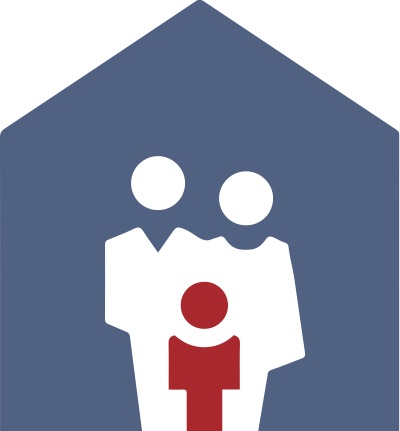The Administration for Children and Families and the Health Resources and Services Administration within the U.S. Department of Health and Human Services recently released the results of a multi-year study of the Maternal, Infant, and Early Childhood Home Visiting (MIECHV) program. The study confirms lessons learned for states and communities working to continually improve the outcomes of vital, federally-funded voluntary home visiting programs, and documents positive outcomes of home visiting.
This study looks at the crucial work being done in communities nationwide to identify family needs and implement and improve home visiting programs to make a difference in the lives of vulnerable families. Outcomes highlighted in the MIHOPE results include:
- Improved home environments: families participating in home visiting provided more cognitive stimulation and emotional support to their children
- Reduced frequency of psychological aggression towards the child: parents participating in home visiting were less likely to yell, scream, or swear at the child, or call the child names
- Fewer child emergency department visits: children whose families participated in home visiting were less likely to go to the ER for injury or illness, perhaps due to improved preventive care; reduced incidence of child maltreatment, or better understanding of when an ER visit is needed
- Fewer child behavior problems: children whose families were enrolled in home visiting were less likely to show aggression, act out, or demonstrate hyperactivity; they were also less likely to present with anxiety, sadness, and social withdrawal
- Gentler guidance: parents enrolled in home visiting were more likely to motivate and encourage their children in a positive manner than to assert power over children to accomplish a task
- Reductions in experience of intimate partner violence: mothers enrolled in home visiting were less likely to experience physical or sexual violence or battering
- Reductions in parental depression: parents enrolled in home visiting were less likely to exhibit symptoms of depression
- Reductions in parental stress: parents participating in home visiting were less likely to exhibit parenting distress or dysfunctional parent-child interactions.
The evaluation was conducted by MDRC in partnership with Mathematica Policy Research, James Bell Associates, Johns Hopkins University, the University of Georgia, and Columbia University using data collected from 2012 to 2016.
“The work of home visiting is difficult,” said Catriona Macdonald, ASTHVI Executive Director. “Families accept a stranger in their homes, and share with that home visitor their hopes, dreams, and struggles, in order to create better life-long opportunities for their children. MIHOPE confirms what all of us in home visiting know: home visiting works. It also confirms that we still have questions, and need to know more to do an even better job of helping vulnerable families build a path to success for themselves and their children.”
Home visiting programs across the country, which use different evidence-based models and locally-tailored approaches, are constantly working to provide ever-more effective services to meet the needs of families in their communities by studying program impact and using that data to innovate and improve. The MIHOPE Impact Study, taken together with existing home visiting research, is a valuable tool to drive even greater impacts and produce even better outcomes for children, families and the nation, adding to the nearly 10-year history of continuous improvement to MIECHV programs and approaches.
This study builds on the robust and ever-expanding body of research confirming the many benefits of home visiting programs, including a broad compilation of research the Association of State and Tribal Home Visiting Initiatives released late last year that highlights findings from 33 separate studies of different home visiting models in a variety of communities across multiple outcomes.
The home visiting field is focused on ensuring the healthy development of our nation’s youngest children. This study adds to the robust body of research that the field can use to ensure voluntary home visiting programs and services provide cost-effective, evidence-based supports that truly meet the needs of families with young children.
To view this statement in pdf, click here.

